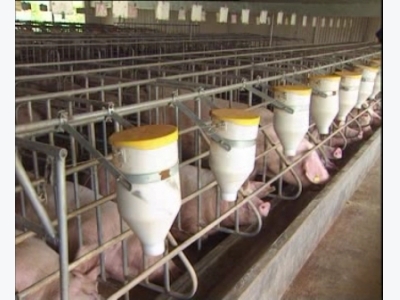Vietnam to ban antibiotics in livestock farming

HCMC - Vietnam will impose a ban on all kinds of antibiotics in livestock farming after 2020, and those currently used in animal feed are only allowed until the end of this year, said Hoang Huong Giang from the Livestock Production Department under the Ministry of Agriculture and Rural Development, Thanh Nien reported.
Only 15 among 43 types of antibiotics approved for animal feed can be used until the end of the year. The rampant use of antibiotics in farming has caused immunity among bacteria and damaged the health of consumers due to higher-than-permitted residues.
According to a recent survey on 208 poultry farms in Tien Giang Province, the level of antibiotics used in farming has been detected to be six times higher than Europe’s standards. Some 84% of them are used for disease prevention, said Nguyen Thu Thuy, deputy director of the Department of Animal Health under the agriculture ministry.
In addition to using animal feed with high antibiotic levels, about 72% of farm owners use at least one type of antibiotics directly in the livestock’s lifetime to prevent disease or to stimulate growth. In pig farming, antibiotics are also intensively used.
According to the department’s statistics on the antibiotics immunity among 202 samples of Campylobacter bacteria (which can cause diseases for humans and other animals) from 343 livestock farms in the Mekong Delta, 100% of samples are immune to Erythromycin, 99% immune to Sulfamethoxazole – Trimethoprim and 92% immune to Nalidixic acid.
The same statistics among 318 samples of Salmonella bacteria (which can cause food poisoning) from markets in the north of Vietnam show 58.5% are immune to Tetracyline, 58.1% immune to Sulphonamides, 47.3% immune to Streptomycin and 39.8% immune to Ampicillin.
In addition to bad effects on human health, the excessive use of antibiotics has caused direct damage to exporters.
Authorities are now facing many difficulties in controlling the use of antibiotics because farmers can easily buy those drugs without veterinarian’s prescription, said Thuy of the Department of Animal Health.
Có thể bạn quan tâm
 Antibiotic resistance in livestock threatens Vietnamese health and livelihood
Antibiotic resistance in livestock threatens Vietnamese health and livelihood Improper use of antibiotics in breeding will result in antibiotic resistance and residues in food that causes more potential risks for consumers’ health
 Vietnam strive to curb antibiotic in animal breeding
Vietnam strive to curb antibiotic in animal breeding Vietnamese Ministry of Agriculture and Rural Development and Food and Agriculture Organization of the UN (FAO) have agreed a national action plan on control
 Stiff import competition – an opportunity for the fresh fruit segment
Stiff import competition – an opportunity for the fresh fruit segment Fresh fruit imports into the major metropolitan areas of Vietnam have been growing rapidly since the beginning of the year, thanks in part to the country